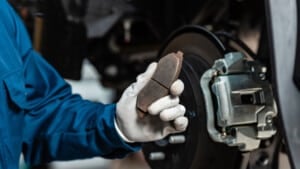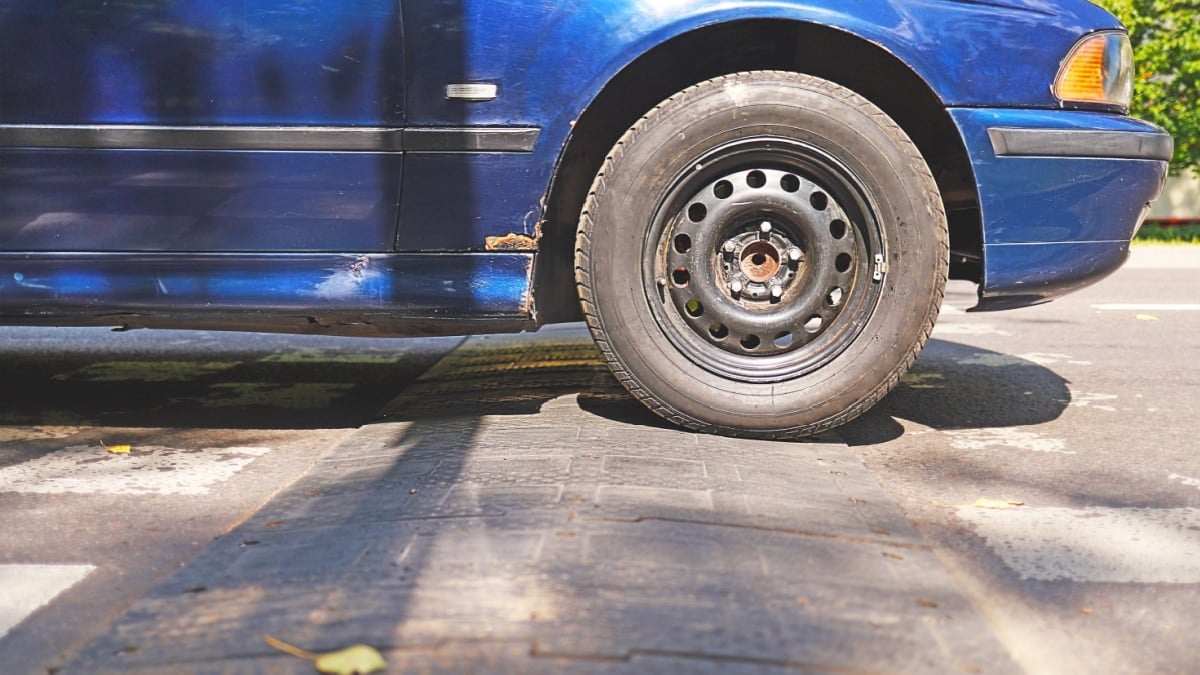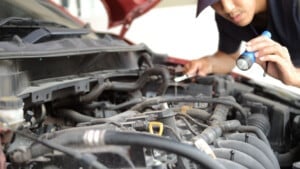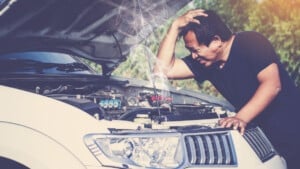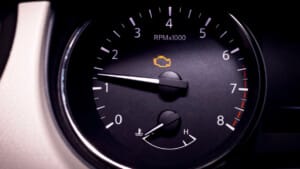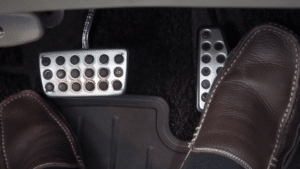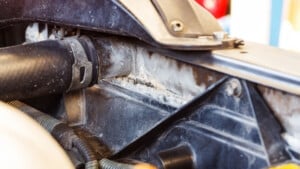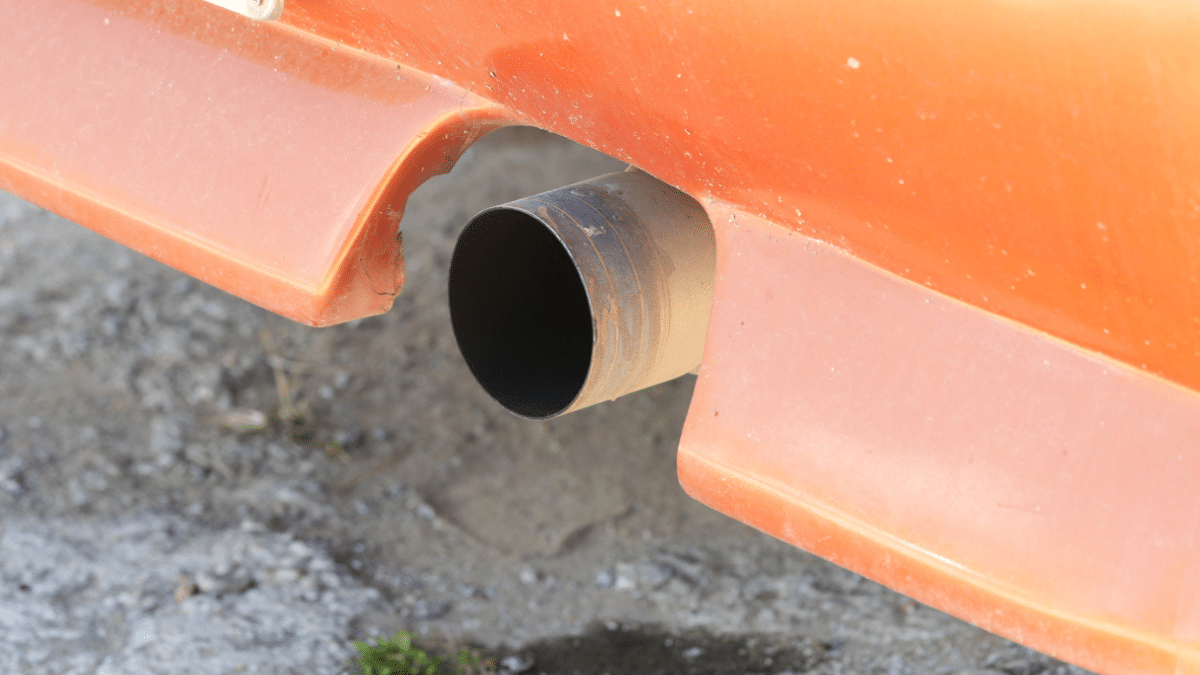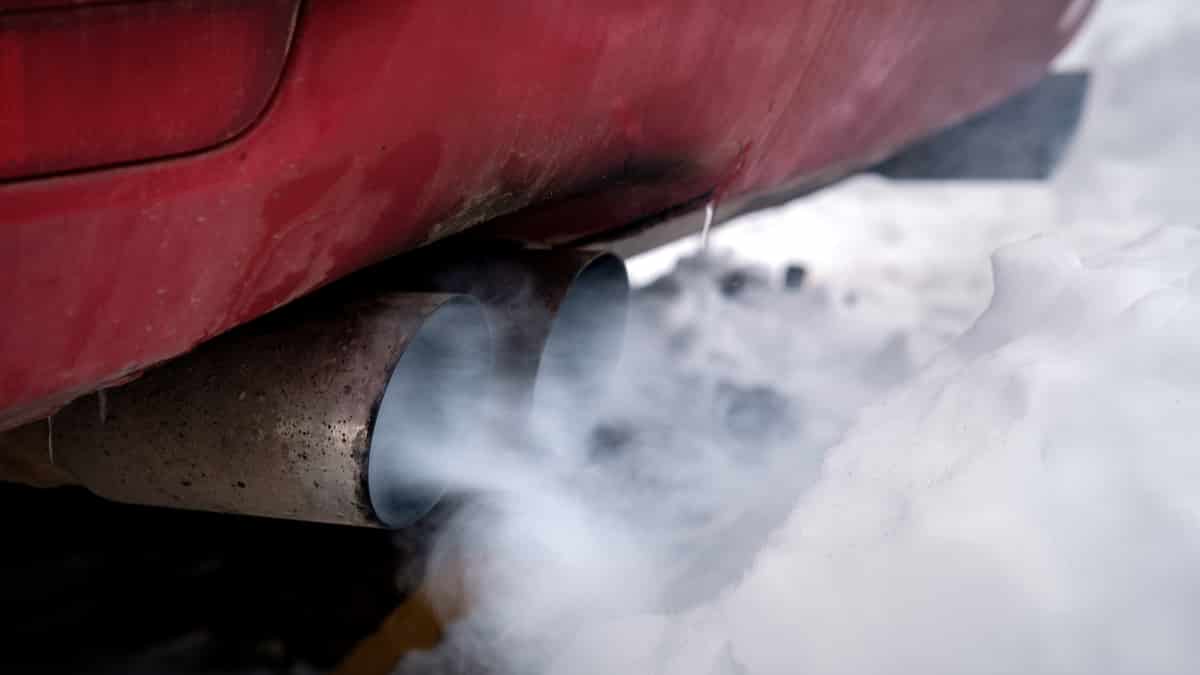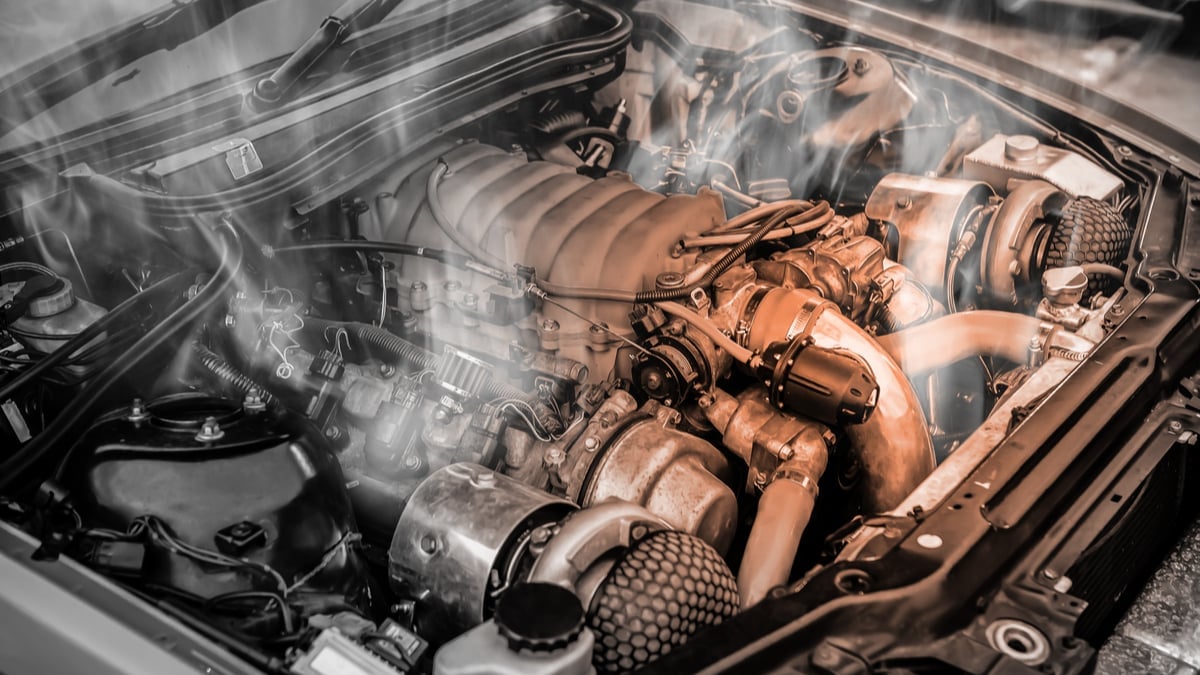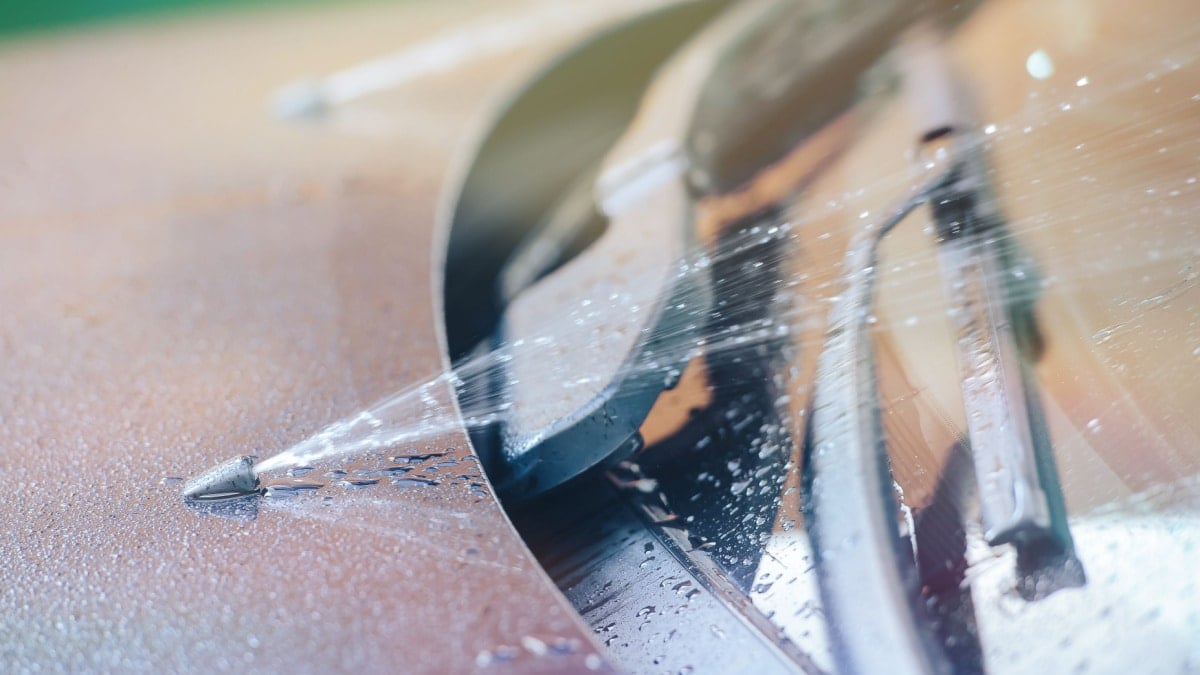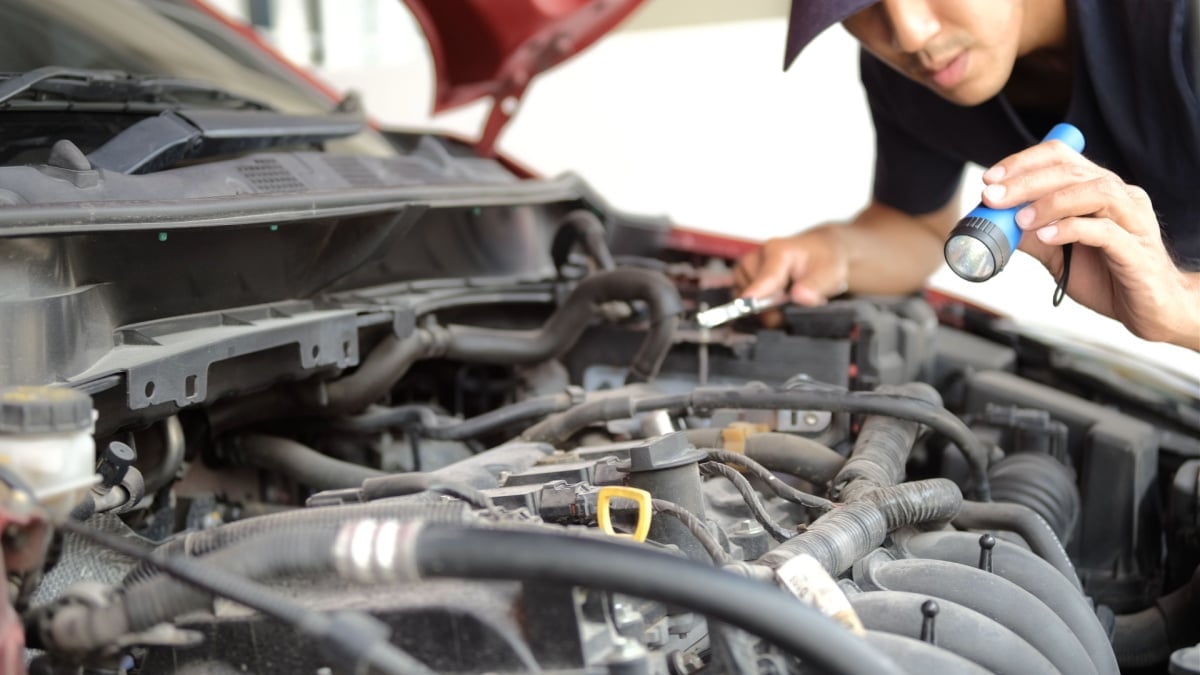The car can make a lot of strange noises on any given day. One that causes heads to turn is when the vehicle starts to whistle. It’s not trying to tell you that you look good, so what does the whistling noise from a car mean?
In this guide, we evaluate all of the reasons you may hear whistling from your car. Some issues are common, while others might surprise you. Based on this information, we can also figure out how to fix it. At the end of our article, you gain answers to questions that may be on your mind.
Causes Of A Whistling Noise From Car
A whistle normally means a mechanical failure. Check for a vacuum leak, a boost pipe leak, a worn-out turbocharger, a slipping serpentine belt, an exhaust leak, or a power steering problem. Also, look for worn window seals, a bad accessory pulley bearing, a leaky EGR cooler or overheating coolant.
Here is a more detailed list of the most common causes of a whistling noise from your car:
1. Vacuum Leak
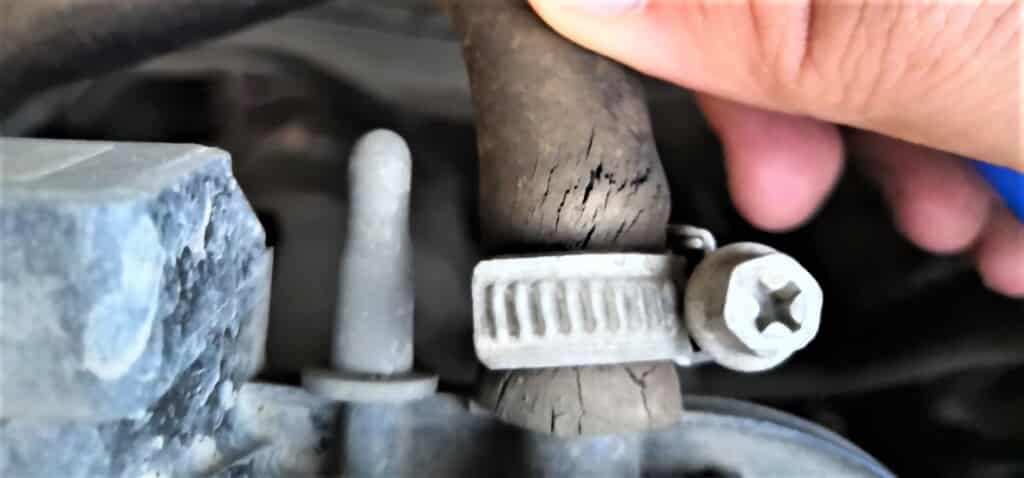
When there’s a vacuum leak in the car, you are going to notice it the most during acceleration. The vacuum controls the airflow between the mass airflow sensor and the motor. It sucks air through a hose into the engine. When this hose becomes loose or gets damaged, a whistling sound occurs when the air escapes.
When a vacuum leak is present, you’ll notice the car running less efficiently. Your fuel economy rating is likely taking a dive during this fault. This repair isn’t necessarily urgent, but it could end up ruining your catalytic converter.
2. Boost Pipe Leak
If the car is feeling sluggish and you hear a whistling noise, the problem could be a boost pipe leak. This problem can also cause the Check Engine Light to come on. The boost pipe runs from the turbo to the intercooler.
Along with this leak, you’ll notice a slow turbo spool and a reduction in fuel economy. There could also be black smoke coming out of the exhaust pipe, mainly during acceleration. Ideally, you want to have any problems fixed with the turbocharger right away before it fails completely.
3. Worn Turbocharger
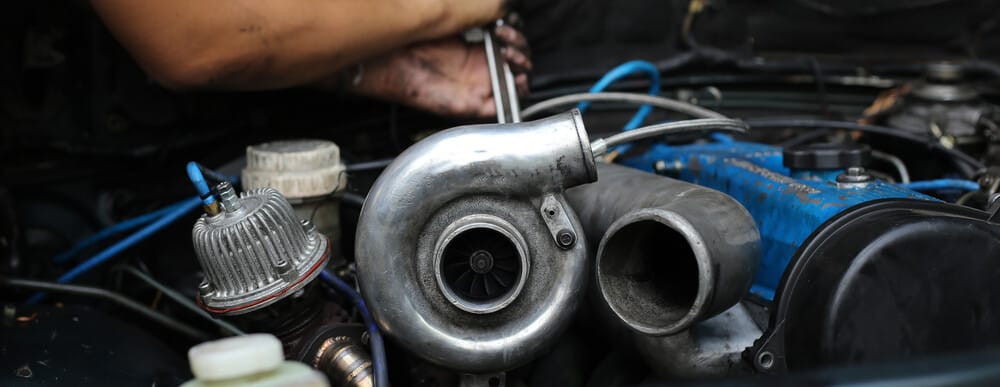
Even under normal conditions, the turbocharger can whistle a little. This noise comes when the compressor speeds up, known as spooling up. If you’ve driven a car with a turbocharger, you know this distinct sound.
When the turbocharger starts to fail, the noise is going to get louder. It may even become slightly whiny instead. As the condition worsens, so will the noise.
4. Slipping or Bad Serpentine Belt
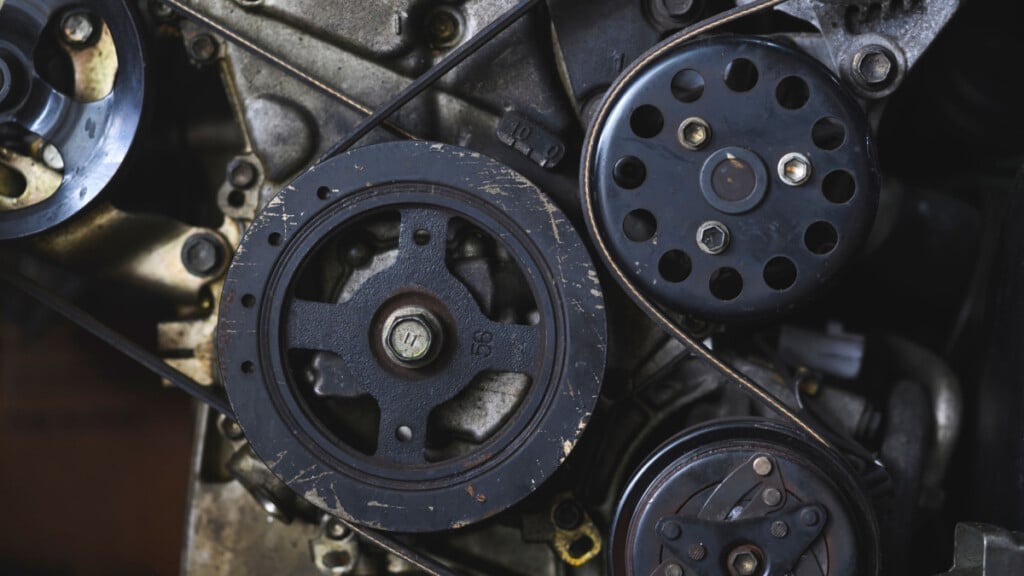
When the serpentine belt starts to fail, it can sound like a whining or a chirping, both of which are often confused for whistling noises. The belt starts to squeal this way because there’s a lack of traction.
Typically, the automatic tensioner fails, leading to slippage. Otherwise, the belt could be contaminated by oil or it could be worn out from many years of use.
Learn more: Serpentine Belt Squealing Noise: Causes & How To Fix
5. Exhaust Leak
The exhaust system is necessary to expel dangerous gases away from the vehicle. As gases come out of the tailpipe from the engine, you shouldn’t hear strange sounds.
However, when a high-pitched whistle or hissing occurs, it could be a sign of a restriction or a leak. Sometimes, it also has to do with high back pressure, which is dangerous. If your car has an exhaust leak, it’s probably going to fail emissions testing, which is no good.
6. Power Steering
It’s not uncommon for power steering pumps to make whistling sounds. As the pump draws in the fluid from the reservoir, it can draw air if the levels are low.
This problem leads to a whistling that is simple to identify. You may even be having trouble with the power steering in conjunction with the unique sound.
7. Worn Window Seals
Is it possible that the whistling you are hearing is coming from the doors instead of a mechanical problem? If you hear more noise coming from the windows than normal, it could be the seals that are faulty.
You may notice the problem more as you speed up because there’s additional air coming through. As the seals remain exposed to extreme temperatures and sunlight, it’s normal for them to wear out.
8. Bad Accessory Pulley Bearing
All vehicles come with different types of pulleys, but they share a standard design. Your car may have an alternator pulley, tensioner pulley, water pump pulley or idler pulley.
When this pulley bearing fails, it makes a whistling, chirping or whining noise. It can also have a corroded surface that’s easy to spot.
9. Leaking EGR Cooler (Volkswagen/Audi)
Not all problems are common with every vehicle. For example, this problem deals mainly with Volkswagen and Audi vehicles.
When the EGR cooler develops a leak, you could hear a whistling noise. It will also drip under the car or start to build up, leaving behind a strange residue.
10. Overheating Coolant
There are many reasons for the car engine to overheat. If the coolant starts to bubble and get hot, you have some serious issues on your hand.
Along with the whistling noise that’s likely caught your attention, you may have some extensive repairs to deal with. Hopefully, you aren’t looking at a blown head gasket.
How To Fix A Whistling Noise From Car
For most novice mechanics, it’s not difficult to fix the common whistling noise at home. With the right equipment and expertise, you can walk through these steps.
1. Check Serpentine Belt & Pulleys
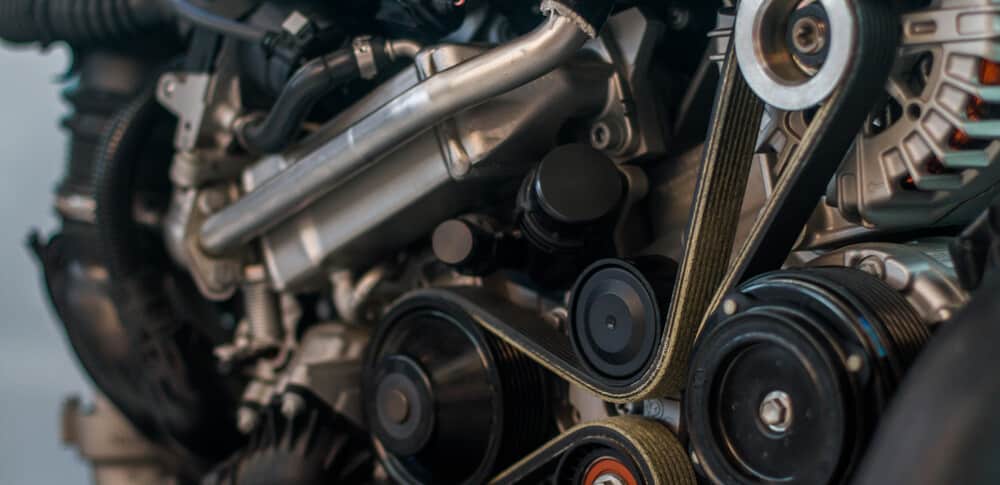
To check the serpentine belt, you want to visually inspect it for any signs of wear. Make sure you twist it, squeeze it and pinch it to see if there are any brittle areas, splits or cracks. The serpentine belt can also have missing grooves, indicating that it needs to be replaced.
To check the pulleys, you are looking for excessive play. It will spin excessively without any restraint.
2. Find Intake or Exhaust Leaks
Perform a complete inspection of the vacuum hoses and connections. You can also use a vacuum tester or spray some water to see if anything bubbles. Additionally, you may prefer to use a propane torch. As you work over the lines, any jump in the RPMs would indicate where there’s a leak.
As far as the exhaust goes, you can start with a visual inspection. If you see any rust or corrosion, you can bet there’s exhaust seeping through. Don’t ever touch the hot exhaust or you will be burned.
3. Check the Power Steering Fluid
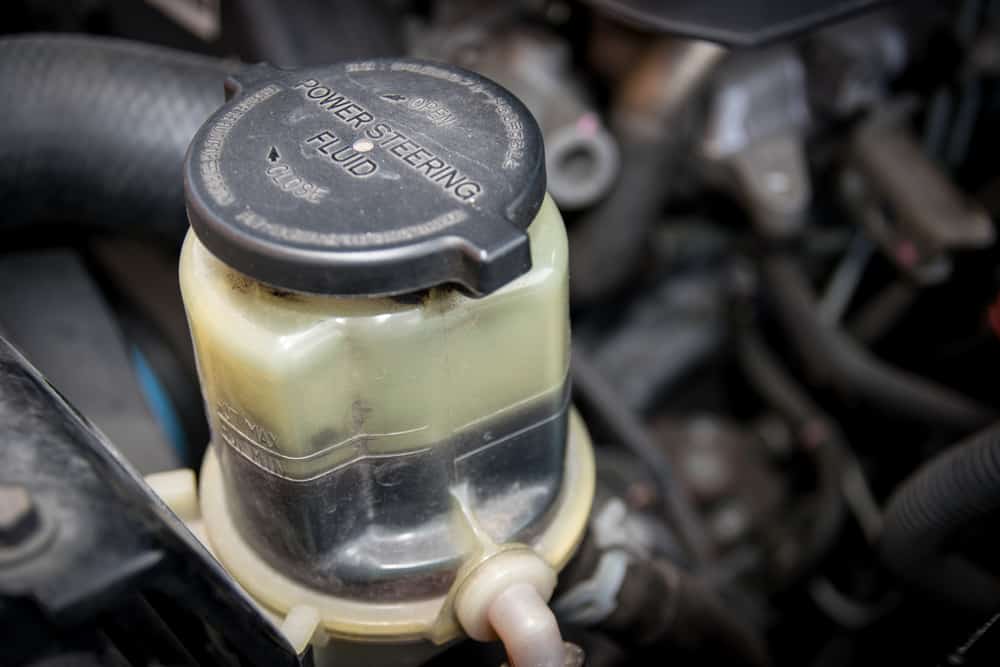
It’s not difficult to check the power steering fluid. The steps are just as simple as the other fluids in your car.
- Remove the dipstick from the container.
- Wipe it off and examine where the markings are.
- Replace the dipstick back into the fluid and remove it again.
- Read the measurement once again.
If the fluid is low, you need to add some more. Remember to check the fluid again in a few months.
4. Contact a Professional
If you are struggling to figure out what’s wrong, your local mechanic should get a call. It’s best to trust these problems with certified technicians when in doubt.
If you don’t have a mechanic already, do your research before deciding where to go. You can research local options with the Better Business Bureau or try out the Consumer Reports Car Repair Assistant to see what’s available in your area.
How do you fix a whistling noise in a car?
It depends on what’s causing the problem. If there’s a mechanical issue, such as an intake or exhaust leak, you need to repair it. There’s also the chance that you are just hearing noise coming through the window because of a worn-out seal.
Why is my car making a loud whistling noise when I accelerate?
While whistling noises can happen for a variety of reasons, an increase during acceleration generally points to an intake leak. It could also mean that extra air is seeping through a window because of a defective seal. The increased speed adds more air to the window pane and creates extra noise.
Why is my car making a high-pitched whining noise?
Defective serpentine belts and pulleys can create a high-pitched whining noise that goes beyond the typical whistle. As any of the belts start to slip, you will hear this ear-piercing squeal that gets a lot of attention. It may start out quiet at first, but will get worse as the belt continues to wear.
Can low oil cause whining noise?
There’s always a chance that low oil is leading to a whining noise, especially if you hear it while your engine is idling. Whenever the oil is low, you should check the system for leaks and repair them immediately. Additionally, the whining noise could be caused by dirty, contaminated oil that needs to be changed.
While the whistling noise from the car isn’t always a big deal, you should have it looked at. Sure, there are times when it turns out to be nothing and you worry for no reason, but it’s better to know than to wonder. If there is something mechanically wrong, you want to fix it before it becomes a bigger hassle.
Instead of listening to the whistling sound, you can once again hear the thoughts running through your head once again. Or maybe, you want to listen to a podcast without that annoying noise disturbing the moment. A quick fix may be all that’s needed.
Learn more:
- Whining Noise When Accelerating – Causes & Fixes
- 3 Causes of Idler Pulley Noise (& Replacement Cost)
- 7 Engine Noises You Should Not Ignore (& What They Mean)
Categories: Troubleshooting



